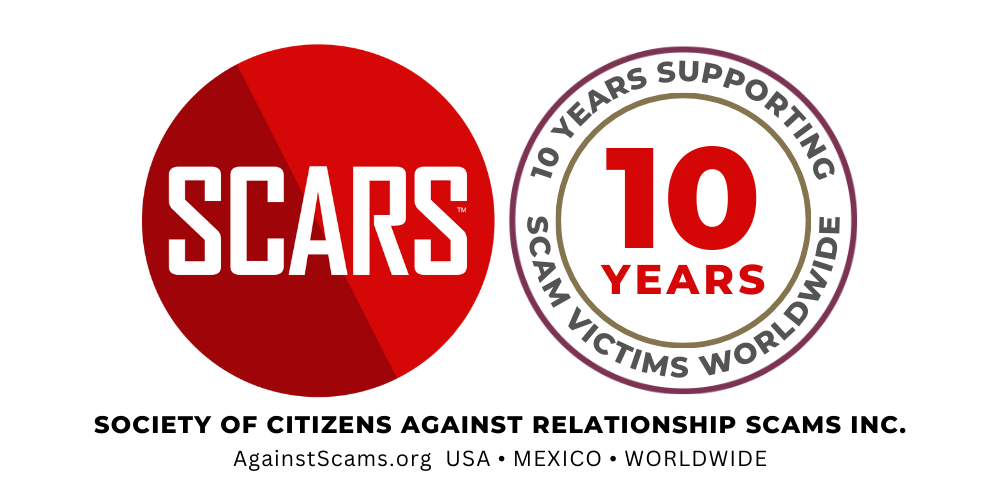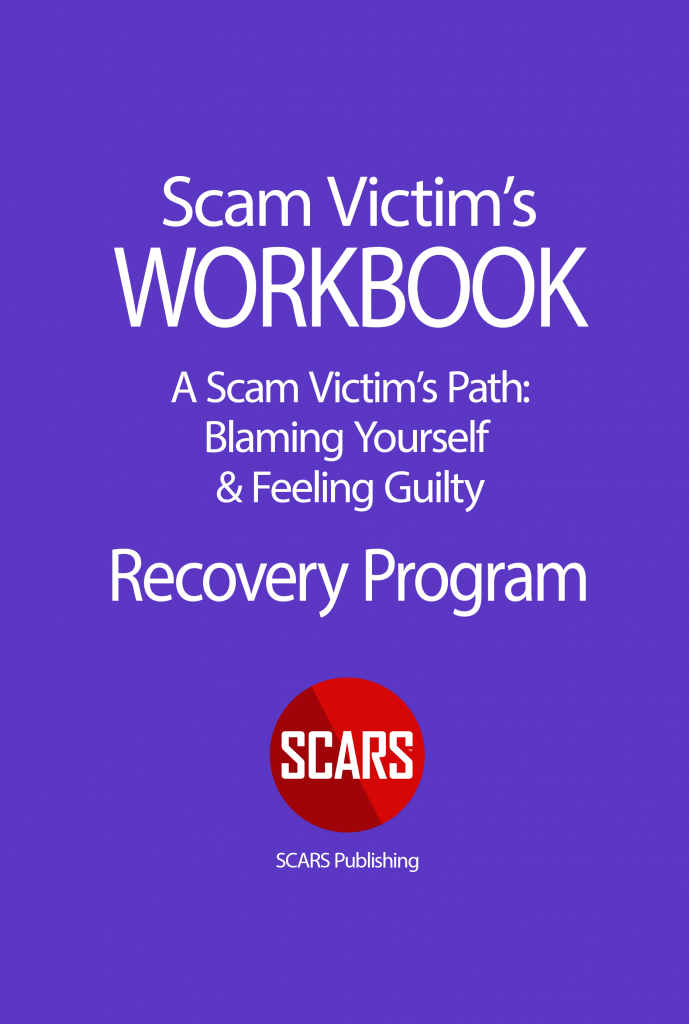
How Do You Get Closure If You Are A Scam Victim?
Getting Closure is Complicated for Scam Victims – It is All About Acknowledgement, Acceptance, and Forgiveness!
An Essential Part of Scam Victim Recovery
Key Topics:
-
What is Closure for Scam Victims
-
How to Acknowledge and Accept
-
Forgiveness and Reconciliation
-
Maintaining Your Closure
What Does Closure Mean to a Scam Victim?
Closure can mean different things for Different People, but for Scam Victims it is all about Forgiveness and Moving Forward!
Closure may be what someone needs to move on after a long relationship, after the death of a loved one, after a traumatic childhood event, or to overcome feelings of guilt for hurting someone in the past.
What is Psychological Closure?
Psychologically, closure refers to the process of coming to terms with a distressing or unresolved situation, allowing individuals to move forward and find resolution.
Why is Closure Important?
Closure is vitally important for scam victims as it marks a milestone of their healing journey when they finally reclaim control over their lives. The aftermath of a scam leaves every victim grappling with their emotions, from anger and betrayal to shame and self-doubt. Without closure, these unresolved feelings linger, perpetuating a cycle of emotional distress and hindering the process of moving forward. Obtaining closure allows victims to finalize their experiences, and ultimately, let go of the crime and criminals. It provides a sense of resolution and finality, enabling victims to release focus on the crime and focus on rebuilding their lives with newfound strength and resilience. By achieving closure, scam victims can reclaim their full sense of self-worth, restore their trust in others, and embark on a new path into their future.
Optional For Scam Victims
SCARS WORKBOOK – Blaming Yourself & Feeling Guilty – a Part of the SCARS Recovery Program available on shop.AgainstScams.org
Defining Closure
-
an act of closing : the condition of being closed
-
an often comforting or satisfying sense of finality
For someone who has been traumatized by being the victim of a crime, closure involves several psychological processes aimed at integrating the traumatic experience into their personal narrative and restoring a sense of equilibrium and control.
- Acknowledgment of Emotions: The first step in achieving closure is acknowledging and validating the emotions associated with the traumatic experience. This includes feelings of fear, anger, grief, shame, and betrayal. By allowing themselves to feel these emotions fully and without judgment, individuals begin to process and make sense of their trauma.
- Acceptance of Reality: Closure requires accepting the reality of what has happened, including the impact it has had on one’s life. This may involve confronting painful truths, such as the loss of trust in others or the realization of one’s own vulnerability. Acceptance allows individuals to let go of denial and avoidance and face the aftermath of the crime with courage and resilience.
- Meaning-Making: Finding meaning in the traumatic experience is a crucial aspect of closure. This involves reframing the narrative of victimization and identifying personal growth, strength, and resilience that have emerged from the ordeal. By recognizing the lessons learned and the ways in which they have evolved as individuals, victims can reclaim a sense of agency and purpose in their lives.
- Reconciliation and Forgiveness: Closure often involves reconciling conflicting emotions and finding a sense of peace and resolution. This may include forgiving oneself for perceived mistakes or shortcomings, as well as extending forgiveness to others, including the perpetrator of the crime. Forgiveness does not mean condoning or excusing harmful behavior but rather releasing the hold that resentment and anger have over one’s own life.
- Integration and Moving Forward: Ultimately, closure is about integrating the traumatic experience into one’s personal narrative and moving forward with renewed hope and optimism. This may involve setting new goals, re-establishing trust in oneself and others, and engaging in activities that bring joy, fulfillment, and meaning. Closure does not mean forgetting or erasing the past but rather finding a way to live with it in a way that empowers and enriches one’s life.
For victims of crime, achieving closure is a complex and deeply personal process that takes quite a bit of time, patience, and support. It may involve revisiting painful memories, confronting difficult emotions, participating in a support group, and engaging in therapy or counseling to facilitate healing. However, by embracing the journey toward closure, victims can reclaim their sense of self and emerge from their trauma with greater resilience, strength, and compassion.
Closure after a Romance Scam is a Bit Different
With a Romance Scam, there is no way to say goodbye, there is no real person, no criminal to arrest (most of the time), no recovery of your money (most of the time).
You are left with just thin air, a blank screen, and all of the after-effects of physical addiction (hormones and neurotransmitters that the criminals manipulated to control you,) and trauma and grief all rolled into one.
If you are seeking closure after a romance scam or other type of scam there are some strategies that you can use to get something that may serve as closure.
Recovering from Romance Scams is Not Easy!
You are going to go through hell before you can feel safe and comfortable again. But we have helped thousands go through this over our history and you can get through this too.
If you need help you have several options available to you. It is important for all scam victims to see a local trauma counselor or therapist. SCARS also offers real safe scam victim support and recovery program groups. Begin your journey by visiting www.ScamVictimsSupport.org
Decide What Closure is for You
Rather, plan a roadmap of the progress you hope to make and try to figure out what closure really means for you. But it has to be realistic for the situation. If you allow your emotions (usually anger) to drive what you want closure to be, then you will likely never achieve it.
Understanding Your Closure
Closure is a critical aspect of the healing journey for victims of romance scams and other types of scams as well.
Unlike in cases where perpetrators are apprehended and justice is served, most scam victims will find themselves grappling with a lack of closure due to the elusive nature of scammers. Without closure, victims struggle to move forward, many times experiencing lingering feelings of betrayal, anger, and confusion – many times they are not even aware of them. However, despite the absence of legal resolution, there are steps that victims can take to find closure and regain a sense of control over their lives.
Ultimately, finding closure after a scam is a deeply personal journey that looks different for everyone. By acknowledging their emotions, seeking support, reframing their experiences, prioritizing self-care, and embracing forgiveness, victims can take meaningful steps towards healing and reclaiming their lives. While closure may not come overnight, with time, patience, and self-compassion, victims can emerge from their ordeals stronger, wiser, and more resilient than ever before.
What is Realistic?
This is where you will have to confront some very hard truths. Nothing about this truth will be easy. It has hard edges and sharp blades – it often hurts.
Let’s explore the basic facts of a Romance or other Relationship Scam:
- Always remember that this was NOT your fault!
- This was done to you without your consent – it was a violation – it was an act of violence
- You lost your heart to someone who was not real
- Your emotions were hijacked without your consent – this was a violation – it was done to you
- Everything you were told was a lie – the name, the history, the relationship (even if some elements might have been true, it was all in the context of a deception)
- You lost money – maybe everything you had – to a group of scammers/an organized group of criminals – it was not one person
- You probably don’t even know the real identity of the scammer(s)
- Law enforcement has limited ability to help you – but reporting still matters
- Even if the scammer(s) is arrested you will probably never know – usually overseas they are not tried for all of their victims
As Hard as it is these are the truths that you must accept before you can begin to get closure. But closure is not a single moment, it is a process and is part of the larger path of recovery.
Acknowledging and processing emotions is essential. It’s normal for victims to experience a range of emotions, including grief, shame, and anger. By allowing themselves to feel these emotions fully and without judgment, victims can begin to release their hold and move forward.
Begin by Getting Help
As we said above, the path begins with the first step. The first step is to acknowledge and accept that it happened and that you need help.
Seeking support from trusted friends, family members, support groups, and a professional counselor or therapist is immensely helpful and necessary. Talking about their experiences with others who understand and empathize can provide validation, comfort, and perspective. Additionally, professional counseling or therapy offers a safe space for victims to explore their feelings and develop coping strategies, and learn to manage and heal from their trauma.
Not everyone is ready for this. Many will hide in their denial, or avoid help in their anger. But there is no escaping the need.
You are going to be in real emotional turmoil after you discover the scam – everything is raw – betrayal trauma is very difficult, plus all the stages of grief. Additionally, since these fake romances play heavily with the brain and hormones there are addictive qualities as well. You are going to have to deal with all of this and it is not easy, but you can do it. Especially with help.
Help can come from different directions:
- It can come from family and friends if you have them that you trust and will help you
- It can come from a SCARS Scam Victim Support Group (click here for one of ours)
- It can come from a local Counselor or Therapist (click here to find one)
- It can come from learning and understanding and personal development
- It can come from talking with other victims
Help can come from many different places – All of it will help you
Don’t Let It Become Personal
It’s essential for scam victims to recognize that, while the impact of the scam on their lives may be deeply personal and traumatic, for the perpetrators, it was merely a business transaction. Scammers operate with the sole intention of exploiting vulnerabilities for financial gain, without consideration for the emotional or psychological consequences on their victims. By understanding this distinction, victims can avoid internalizing the scam as a personal targetted attack, which can intensify feelings of shame, anger, self-blame, as well as anger, aggression, and even hate.
When victims personalize the scam, attributing malicious intent, cruelty, or that they were specifically selected by the perpetrators, it becomes significantly harder to let go and move forward. The emotional weight of feeling personally targeted can prolong the healing process and hinder efforts to obtain closure. Moreover, dwelling on feelings of revenge or retribution can perpetuate a cycle of anger and resentment, keeping victims trapped in a state of emotional turmoil. Remember, they did not target you, they targeted everyone, it was just your day.
Instead, reframing the scam as a calculated business tactic can help victims distance themselves emotionally from the perpetrators, allowing them to focus on their own healing and recovery. Recognizing that scammers prey on vulnerabilities indiscriminately of everyone can alleviate feelings that it was personal, keeping the crime in the proper light while helping to rebuild empowerment and resilience. By depersonalizing the scam, victims can reclaim their sense of agency and control, enabling them to let go of the past and embrace a brighter future.
We recommend thinking about these crimes as an act of nature. A natural disaster where the victim was just in the path of the storm because in a very real sense that was the case. That does not mean that the crimes should not be reported, or that the criminals prosecuted, by thinking of them as something in the environment to avoid in the future does help to obtain closure.
SCARS 5-Steps To Closure
We have said that closure is a process. That process is about turning away from the event and the criminals and looking to your future.
The human mind is an amazing device and if you give it half a chance it will try to fix itself. However, the solutions it comes up with will often be negative coping mechanisms, and these are not what you need for long-term closure. This is where education, support, and therapy are so important.
The following are things that you can do that will help you find the Closure that you seek!
1. Acknowledge and Accept that it Happened
For scam victims, achieving closure is a crucial step in the healing process, and acknowledgment and acceptance play pivotal roles in this journey.
Here is why this is so important:
- Validating the Experience: Acknowledgment is the first step towards closure for scam victims. Many individuals who fall victim to scams experience feelings of shame, embarrassment, and self-blame. By acknowledging that they have been victimized, they validate their experience and recognize that they are not alone in their ordeal. This validation is essential for restoring their sense of self-worth and dignity.
- Confronting Reality: Acceptance involves confronting the harsh reality of the scam and its impact on one’s life. Scam victims may have to come to terms with financial losses, damaged relationships, and shattered trust. Acceptance allows them to move past denial and avoidance and face the truth head-on. While this process can be painful, it is necessary to acknowledge the full extent of the harm caused by the scam.
- Letting Go of Shame and Self-Blame: Scam victims often blame themselves for falling prey to deception, believing that they should have seen the signs or been more cautious. Acceptance involves letting go of this self-blame and recognizing that scammers are skilled manipulators who exploit vulnerabilities in their victims. By accepting that they were targeted by skilled criminals, victims can release themselves from feelings of guilt and shame.
- Reclaiming Power and Control: Acknowledgment and acceptance empower scam victims to take back control of their lives. Instead of dwelling on the past or ruminating on what could have been done differently, victims can focus on the present moment and take proactive steps toward recovery. Acceptance allows them to reclaim their agency and make informed decisions about their future, free from the grip of the scam.
- Facilitating Healing: Ultimately, acknowledgment and acceptance pave the way for healing and closure. By facing the reality of the scam and embracing their experience without judgment, victims can begin to heal from the emotional wounds inflicted by the deception. Closure does not mean forgetting what happened but rather integrating the experience into one’s life story in a way that promotes growth, resilience, and wisdom.
Acknowledgment and acceptance are essential components of achieving closure for scam victims. By validating their experience, confronting reality, letting go of shame and self-blame, reclaiming power and control, and facilitating healing, victims can move forward with their lives and emerge from the ordeal with strength, resilience, and a renewed sense of purpose.
2. Reframing the Experience – Meaning-Making
Another crucial step towards closure is reframing the experience and finding meaning in the aftermath of the scam. While it may be difficult to see at first, many victims emerge from their ordeals with valuable lessons learned and newfound resilience. By focusing on personal growth and empowerment, victims can transform their experiences into catalysts for positive change.
Reframing the experience, also known as meaning-making, is a powerful psychological process that can help scam victims achieve closure. It involves shifting one’s perspective on the scam/fraud/crime and its aftermath in a way that promotes personal growth, resilience, and healing. Here’s why reframing is important and how it works:
- Finding Purpose in Adversity: Reframing allows scam victims to find meaning and purpose in their experience, even in the face of adversity. Instead of viewing themselves solely as victims, they can see themselves as survivors who have overcome a significant challenge. This shift in perspective empowers victims to draw upon their resilience and inner strength to navigate the aftermath of the scam.
- Identifying Lessons Learned: Reframing encourages scam victims to identify lessons learned from their experience. They can reflect on the warning signs they missed, the vulnerabilities the scam exploited, and the red flags they now recognize for the future. By extracting valuable insights from their ordeal, victims can turn their negative experience into an opportunity for personal growth and self-improvement.
- Creating a New Narrative: Reframing allows scam victims to create a new narrative about their experience—one that is empowering and affirming. Instead of being defined by their victimization, they can redefine themselves as resilient, resourceful individuals who have overcome adversity. This new narrative serves as a source of strength and inspiration as victims move forward with their lives.
- Building Resilience: Reframing fosters resilience by helping scam victims develop a more adaptive and flexible mindset. Rather than dwelling on the past or feeling stuck in a cycle of negativity, victims can embrace a forward-thinking perspective that focuses on solutions and possibilities. This resilience enables them to bounce back from setbacks, cope with challenges, and thrive in the face of adversity.
- Promoting Emotional Healing: Ultimately, reframing promotes emotional healing by helping scam victims make sense of their experience and integrate it into their life story. By reframing the scam as a transformative experience rather than a purely negative one, victims can release themselves from the emotional burden of shame, guilt, and regret. This process allows them to find closure and peace of mind as they move forward with their lives.
Reframing the experience through meaning-making is a powerful tool for scam victims seeking closure. By finding purpose in adversity, identifying lessons learned, creating a new narrative, building resilience, and promoting emotional healing, victims can reclaim their agency and empower themselves to turn their negative experience into a catalyst for positive change.
3. Reconciliation and Forgiveness
Reconciliation and forgiveness play very important roles in achieving closure for scam victims, providing avenues for emotional healing, empowerment, and moving forward.
Here is why they are so important:
- Acknowledging Emotions: Reconciliation involves acknowledging and processing the complex emotions that arise from being a scam victim. This includes feelings of betrayal, anger, shame, and grief. By allowing themselves to fully experience and express these emotions, victims can begin the healing process and release the emotional burden they carry.
- Empowerment through Forgiveness: Forgiveness is not about condoning the scammer’s actions or minimizing the harm caused. Instead, it is a powerful act of self-empowerment that allows victims to release themselves from the grip of resentment and anger. By forgiving the scammer, victims reclaim their power and control over their own emotions and lives.
- Breaking the Cycle of Victimhood: Holding onto resentment and anger towards the scammer perpetuates a cycle of victimhood, keeping victims trapped in the past and unable to move forward. Forgiveness breaks this cycle by freeing victims from the emotional bonds that tie them to the scammer. It allows them to let go of the past and focus on creating a positive future for themselves.
- Promoting Emotional Well-being: Forgiveness has been linked to numerous physical and psychological benefits, including reduced stress, anxiety, and depression. By letting go of negative emotions and embracing forgiveness, scam victims can experience greater emotional well-being and inner peace.
- Fostering Reconciliation with Oneself: Forgiveness is not only directed towards the scammer but also towards oneself. Many victims blame themselves for falling prey to the scam, leading to feelings of guilt and self-blame. Forgiving oneself is an essential part of the reconciliation process, allowing victims to let go of self-judgment and embrace self-compassion.
- Reclaiming Personal Power: Forgiveness is an empowering act that allows scam victims to reclaim their personal power and agency. Instead of allowing the scammer to continue to hold sway over their emotions and thoughts, victims take back control by choosing to forgive. This act of empowerment is essential for achieving closure and moving forward with confidence and resilience.
Reconciliation and forgiveness are integral components of achieving closure for scam victims. By acknowledging their emotions, empowering themselves through forgiveness, breaking the cycle of victimhood, promoting emotional well-being, fostering reconciliation with oneself, and reclaiming personal power, victims can heal from the trauma of the scam and embrace a brighter future filled with hope and possibility.
Remember, forgiveness, though challenging, is a powerful tool for closure. This doesn’t necessarily mean absolving the scammer of responsibility or excusing their actions. Instead, it’s about releasing the hold that resentment and anger have over one’s own life. Forgiveness is a gift that victims give to themselves, allowing them to let go of the past and embrace the present with renewed hope and optimism.
4. Integration and Moving Forward
Integration and moving forward are crucial steps in achieving closure for scam victims, allowing them to incorporate the experience into their lives in a way that promotes growth, resilience, and a sense of empowerment.
Here is a detailed explanation of their importance:
- Acknowledging the Experience: Integration begins with acknowledging the reality of the scam and its impact on one’s life. This involves accepting the emotions, thoughts, and consequences associated with the experience without judgment or self-blame. By acknowledging the experience, victims validate their own reality and create a foundation for healing.
- Making Meaning: Integration involves making meaning out of the scam experience, finding lessons, insights, and personal growth opportunities within the adversity. This process of meaning-making allows victims to reframe the experience from one of victimhood to one of empowerment. By identifying the lessons learned and personal strengths gained, victims can reclaim a sense of agency and purpose in their lives.
- Rebuilding Trust: Scams often shatter victims’ trust in themselves, others, and the world around them. Integration involves rebuilding trust by cultivating self-trust, setting healthy boundaries, and developing discernment skills. By learning to trust themselves again, victims regain a sense of confidence and self-assurance that is essential for moving forward.
- Reconnecting with Others: Integration also involves reconnecting with others and rebuilding social connections that may have been strained or severed as a result of the scam. This includes reaching out for support from friends, family, or support groups, as well as engaging in activities and hobbies that bring joy and fulfillment. By reestablishing social connections, victims combat feelings of isolation and loneliness, fostering a sense of belonging and community.
- Setting Goals and Moving Forward: Integration culminates in setting goals and taking steps toward a positive future. This involves identifying personal values, aspirations, and priorities and taking concrete actions to pursue them. Whether it’s pursuing education, career advancement, personal development, or new experiences, setting goals and moving forward empowers victims to create a life that is aligned with their values and aspirations.
- Embracing Resilience: Integration is ultimately about embracing resilience and embracing a mindset of growth and possibility. Scam victims have endured a traumatic experience, but they also have the strength, resilience, and inner resources to overcome adversity and thrive. By embracing resilience, victims can transcend the role of victimhood and embrace their identity as survivors, capable of overcoming any challenge life may present.
Integration and moving forward are essential steps in achieving closure for scam victims. By acknowledging the experience, making meaning, rebuilding trust, reconnecting with others, setting goals, and embracing resilience, victims can transform the adversity of the scam into an opportunity for personal growth, empowerment, and a brighter future filled with hope and possibility.
5. Self-Care and Attention to One’s Self
Self-care and attention to one’s self are paramount for achieving closure for scam victims because even if you have succeeded in the previous steps, closure can reverse. It takes maintenance to keep that door closed – not through avoidance but through being kind to yourself.
Engaging in self-care activities and practicing self-compassion is also vital for healing. Victims should prioritize their physical, emotional, and mental well-being, engaging in activities that bring them joy, relaxation, and fulfillment. This is important not just during the early days after the crime ends, but for the rest of their life.
Here’s a comprehensive explanation of their importance:
- Honoring Emotions: Self-care begins with honoring and acknowledging one’s emotions without judgment. Scam victims often experience a range of emotions such as anger, shame, guilt, and grief. It’s essential for victims to allow themselves to feel these emotions fully and express them in healthy ways. This may involve journaling, talking to a therapist or support group, or engaging in activities that promote emotional release and catharsis.
- Setting Boundaries: Self-care involves setting and maintaining healthy boundaries to protect one’s physical, emotional, and psychological well-being. Scam victims may have their boundaries violated during the scam, leading to feelings of vulnerability and mistrust. Setting clear boundaries with others and oneself is crucial for rebuilding a sense of safety and self-respect. This may include saying no to requests that feel overwhelming, limiting contact with toxic individuals, and prioritizing self-care practices that nurture and replenish energy.
- Practicing Self-Compassion: Self-care entails practicing self-compassion and kindness toward oneself, especially in the face of adversity. Scam victims may struggle with self-blame and self-criticism, believing they should have known better or prevented the scam from happening. Practicing self-compassion involves treating oneself with the same kindness and understanding one would offer to a friend in a similar situation. This may involve self-soothing techniques, positive affirmations, and self-care rituals that promote self-love and acceptance.
- Prioritizing Physical Health: Self-care includes prioritizing physical health and well-being through regular exercise, nutritious eating, adequate sleep, and medical check-ups. Scam victims may neglect their physical health amidst the emotional turmoil of the scam experience, leading to increased stress, fatigue, and illness. Prioritizing physical health not only strengthens the body’s resilience but also enhances mood, energy levels, and overall quality of life.
- Engaging in Pleasurable Activities: Self-care involves engaging in pleasurable activities that bring joy, relaxation, and fulfillment. Scam victims may lose interest in activities they once enjoyed or feel guilty for taking time for themselves. Engaging in pleasurable activities replenishes energy, reduces stress, and promotes a sense of well-being. This may include hobbies, creative pursuits, spending time in nature, or simply relaxing with loved ones.
- Seeking Support: Self-care entails seeking support from trusted friends, family members, therapists, or support groups. Scam victims may feel isolated and alone in their experience, believing that others won’t understand or judge them. Seeking support allows victims to share their feelings, gain perspective, and receive validation and empathy from others who have experienced similar challenges. This sense of connection and support is essential for healing and moving forward.
- Practicing Mindfulness and Self-Reflection: Self-care involves practicing mindfulness and self-reflection to cultivate awareness of one’s thoughts, feelings, and behaviors. Scam victims may experience intrusive thoughts, rumination, and hypervigilance related to the scam experience. Mindfulness techniques such as deep breathing, meditation, and grounding exercises help victims regulate their emotions, reduce stress, and foster a sense of inner peace and calm. Self-reflection allows victims to gain insight into their patterns of thinking and behavior, identify triggers, and develop coping strategies that promote resilience and well-being.
Self-care and attention to one’s self are essential components of achieving closure for scam victims. By honoring emotions, setting boundaries, practicing self-compassion, prioritizing physical health, engaging in pleasurable activities, seeking support, and practicing mindfulness and self-reflection, victims can nurture themselves and cultivate resilience in the face of adversity. Self-care is not selfish; it is an act of self-preservation and self-love that empowers victims to reclaim their sense of agency and well-being.
Summary
Obtaining closure as a scam victim is a process that involves acknowledging emotions, reframing the experience, seeking reconciliation and forgiveness, integrating the lessons learned, and prioritizing self-care and attention to one’s self.
It begins with acknowledging and honoring the full range of emotions experienced, allowing for expression and validation without judgment.
Reframing the experience involves finding meaning and purpose in the aftermath of victimization, and recognizing personal growth and resilience amidst adversity.
Seeking reconciliation and forgiveness may involve letting go of resentment and anger towards perpetrators, as well as towards oneself, and creating a sense of compassion and understanding.
Integration and moving forward entail incorporating the lessons learned from the experience into one’s life, finding closure, and embracing new opportunities for growth and healing.
Finally, maintaining well-being for the rest of one’s life involves prioritizing self-care practices, setting boundaries, seeking support, and cultivating resilience and self-compassion. By embracing these steps, scam victims can reclaim their sense of agency, find closure, and move forward with strength and resilience towards a brighter future.
SCARS Support & Recovery
- SCARS INSTITUTE FREE Scam Survivor’s School for Your Recovery • www.SCARSeducation.org
- SCARS Support & Recovery Program For Scam Victims
- Join a Free Safe & Confidential SCARS Support & Recovery Group Now
- SCARS Self Help Books
- How Scam Victims Can Maximize Support Groups Benefits
- If you are looking for local trauma counselors please visit counseling.AgainstScams.org or join SCARS for our counseling/therapy benefit: membership.AgainstScams.org
- If you need to speak with someone now, you can dial 988 or find phone numbers for crisis hotlines all around the world here: www.opencounseling.com/suicide-hotlines
Important Things For Scam Victims To Know
- Importance Of Starting Off Right For New Scam Victims
- Importance Of Journaling For New Scam Victims
- Importance For Scam Victims Of Support & Recovery Group
- Importance Of Learning For Scam Victims Recovering
- Importance Of Trauma Therapy For Scam Victims
- Importance Of Scam Victims Avoiding The Vigilante Trap
- SCARS 3 Steps For New Scam Victims
- Every New Scam Victim Needs To Understand What To Do Next!
- Scam Victims Reporting Scams And Interacting With The Police
- Essential Information for New Scam Victims on SCARS RomanceScamsNOW.com
- Learn More on SCARS ScamsNOW.com
SCARS Resources
- Register for the SCARS Institute FREE Scam Survivor’s School at SCARSeducation.org
- More Info For New Victims of Relationship Scams newvictim.AgainstScams.org
- Subscribe to SCARS Newsletter newsletter.againstscams.org
- Sign up for SCARS professional support & recovery groups, visit support.AgainstScams.org
- Join our Scam Survivors United Chat, Education & Discussion Group facebook.com/groups/scam.survivors.united
- Find competent trauma counselors or therapists, visit counseling.AgainstScams.org
- Become a SCARS Member and get free counseling benefits, visit membership.AgainstScams.org
- Report each and every crime, learn how to at reporting.AgainstScams.org
- Learn more about Scams & Scammers at RomanceScamsNOW.com and ScamsNOW.com
- Scammer photos ScammerPhotos.com
- SCARS Videos youtube.AgainstScams.org
- Self-Help Books for Scam Victims are at shop.AgainstScams.org
- Donate to SCARS and help us help others at donate.AgainstScams.org
- Worldwide Crisis Hotlines: https://blog.opencounseling.com/suicide-hotlines/
• SCARS Scam Psychology Guides & Knowledge: ScamPsychology.org




















